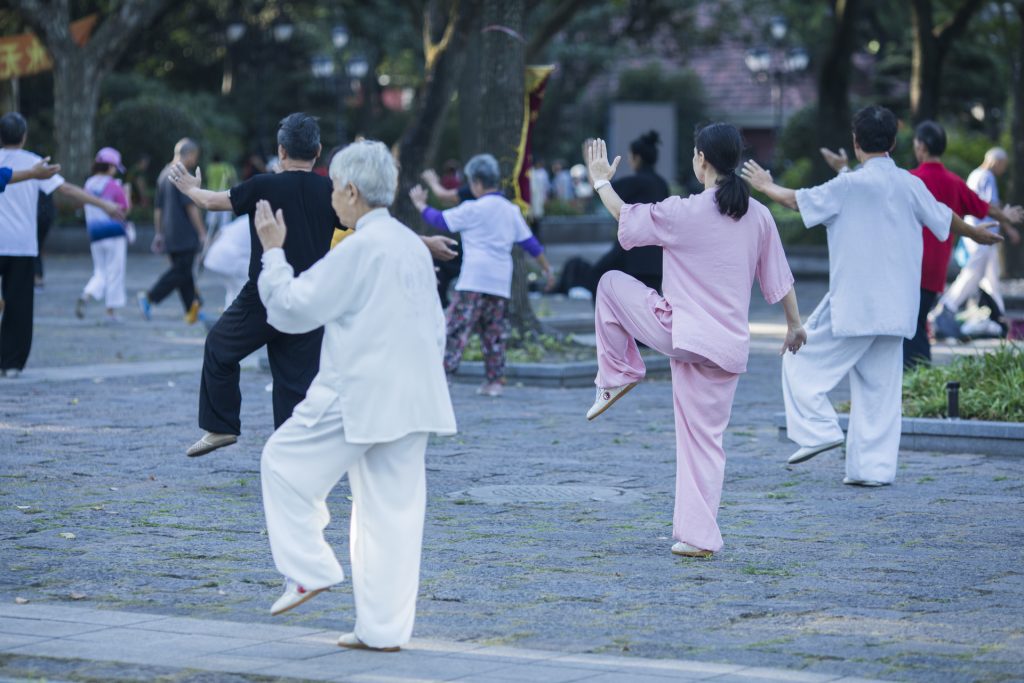International students in China have a unique opportunity to immerse themselves in a rich cultural experience while pursuing their education. Here are some things that international students may find enriching and worthwhile during their time in China:
- Learn Mandarin
- Explore Chinese Cuisine
- Travel
- Experience Traditional Festivals
- Engage in Cultural Activities
- Connect with Locals
- Participate in Student Clubs and Activities
- Learn about Traditional Chinese Medicine
- Stay Informed
Learn Mandarin
Learning Mandarin can be an enriching experience for international students in China. Here’s a guide to getting started:
- Many universities in China offer Mandarin courses specifically tailored for international students. These courses typically range from beginner to advanced levels and cover speaking, listening, reading, and writing skills.
- Practice is key to language acquisition. Make an effort to practice Mandarin every day, whether it’s through speaking with classmates, watching Chinese TV shows or movies, or using language learning apps.
- Surround yourself with Mandarin whenever possible. Engage in conversations with local Chinese students, shopkeepers, or taxi drivers. Try to use Mandarin in everyday situations like ordering food or asking for directions.
- Take advantage of language learning resources such as textbooks, online courses, podcasts, and language exchange partners to supplement your classroom learning.
- While learning Mandarin, also focus on learning Chinese characters. Understanding characters will not only improve your reading ability but also deepen your understanding of the language and culture.
- Learning Mandarin goes hand in hand with learning about Chinese culture. Explore traditional customs, festivals, music, and literature to gain a deeper appreciation for the language and its cultural context.
- Learning Mandarin can be challenging, especially for beginners. Be patient with yourself and stay motivated. Celebrate your progress along the way, no matter how small.
Explore Chinese Cuisine
Exploring Chinese cuisine can be a delightful journey for international students in China. Here are some tips to make the most of your culinary adventures:
- Each region in China has its own unique culinary traditions and specialties. Be sure to sample local dishes wherever you go, whether it’s Beijing duck in the north, spicy Sichuan cuisine in the west, or Cantonese dim sum in the south.
- Street markets and food stalls are excellent places to sample authentic Chinese street food. Be adventurous and try dishes like jianbing (Chinese crepes), stinky tofu, lamb skewers, or baozi (steamed buns).
- Many cities in China offer cooking classes where you can learn how to prepare traditional Chinese dishes yourself. It’s a fun and interactive way to learn about Chinese ingredients and cooking techniques.
- If you have the opportunity, dine with local Chinese friends or host families. They can introduce you to their favorite restaurants and dishes, providing you with a more authentic dining experience.
- Chinese cuisine is incredibly diverse, with a wide range of regional cuisines to explore. From the fiery flavors of Sichuan to the delicate flavors of Jiangsu cuisine, there’s something for every palate.
- Food plays a central role in Chinese culture, and there are many customs and traditions associated with dining. Take the time to learn about Chinese dining etiquette, such as using chopsticks, serving tea, and sharing dishes family-style.
- Take photos and keep a food journal to document your culinary adventures in China. Record your favorite dishes, memorable dining experiences, and any new flavors or ingredients you discover along the way.
Travel
Traveling in China as an international student offers a chance to explore the country’s rich cultural heritage, stunning landscapes, and vibrant cities. Here are some tips for making the most of your travels:
- Research destinations you want to visit and plan your trips in advance. Consider factors like transportation options, accommodation, entry fees, and seasonal weather conditions.
- China is home to numerous UNESCO World Heritage Sites, including the Great Wall, the Forbidden City, and the Terracotta Army. Don’t miss the opportunity to explore these iconic cultural landmarks.

- China boasts diverse natural landscapes, from the karst mountains of Guilin to the picturesque lakes of Jiuzhaigou. Spend time hiking, camping, or simply enjoying the beauty of nature in national parks and scenic areas.
- Explore ancient towns and villages like Pingyao, Lijiang, and Fenghuang to experience traditional Chinese architecture, local customs, and a slower pace of life.
- China has an extensive and efficient transportation network, including high-speed trains, long-distance buses, and domestic flights. Embrace public transportation to travel between cities and regions affordably and conveniently.
- Engage with local communities and immerse yourself in the local culture wherever you go. Participate in cultural activities, attend festivals, and strike up conversations with locals to gain a deeper understanding of China and its people.
Experience Traditional Festivals
Experiencing traditional festivals in China is a wonderful way for international students to immerse themselves in the country’s rich cultural heritage. Here are some traditional festivals you might want to experience:
- Chinese New Year (Spring Festival): Chinese New Year is the most important festival in China, celebrated with family gatherings, feasting, fireworks, and cultural performances. Experience the festive atmosphere, watch dragon and lion dances, and enjoy traditional New Year’s foods like dumplings and niangao (sticky rice cake).
- Mid-Autumn Festival: Also known as the Mooncake Festival, Mid-Autumn Festival is a time for families to reunite, admire the full moon, and enjoy mooncakes, a traditional pastry filled with sweet fillings like lotus seed paste or red bean paste. Join in the festivities by attending lantern exhibitions and moon-viewing events.
- Dragon Boat Festival: Dragon Boat Festival commemorates the ancient poet Qu Yuan and is celebrated with dragon boat races, zongzi (sticky rice dumplings), and other traditional customs like hanging aromatic herbs and colorful silk threads to ward off evil spirits.
- Lantern Festival: Lantern Festival marks the end of the Chinese New Year celebrations and is celebrated with lantern displays, dragon and lion dances, and the eating of tangyuan (sweet rice dumplings). Join in the festivities by visiting lantern fairs and participating in lantern-making workshops.
- Qingming Festival (Tomb-Sweeping Day): Qingming Festival is a time for families to pay respects to their ancestors by visiting their graves, cleaning tombstones, and offering food and other offerings. Experience the solemn rituals and participate in traditional activities like flying kites and enjoying spring outings.
- Double Ninth Festival: Double Ninth Festival, also known as Chongyang Festival, is a day to honor seniors and enjoy outdoor activities like hiking, picnicking, and appreciating the autumn scenery. Join in the festivities by climbing mountains, flying kites, and drinking chrysanthemum wine.
- Winter Solstice Festival: Winter Solstice Festival, also known as Dongzhi Festival, is a time for families to gather and enjoy tangyuan (sweet rice balls) and other hearty dishes to symbolize unity and prosperity. Experience the warmth of family traditions and participate in making tangyuan.
Engage in Cultural Activities
Engaging in cultural activities can greatly enhance the experience of international students in China, allowing them to deepen their understanding of the country’s rich cultural heritage. Here are some cultural activities you might consider:
- Take the opportunity to learn traditional Chinese arts such as calligraphy, painting, or Chinese knot tying. Many universities offer classes or workshops where you can learn these ancient crafts from skilled artisans.
- Experience the ancient martial arts traditions of China by participating in Tai Chi or Kung Fu classes. Tai Chi, in particular, is known for its health benefits and can be practiced in parks across China, often in the early morning.

- Attend performances of traditional Chinese opera, including Peking opera, Kunqu opera, and Sichuan opera. These performances often feature elaborate costumes, intricate makeup, and captivating storytelling.
- Learn about the art of Chinese tea culture by attending a traditional tea ceremony. Discover the different types of Chinese tea, brewing techniques, and the significance of tea in Chinese society.
- Attend concerts or performances showcasing traditional Chinese music and dance, such as the elegant movements of classical Chinese dance or the energetic rhythms of folk dances from various regions of China.
- Look for cultural workshops and experiences offered by local cultural centers or organizations. These may include activities like paper cutting, pottery making, traditional costume dressing, or Chinese cooking classes.
- Explore museums, art galleries, and cultural heritage sites to learn about China’s history, art, and architecture. Visit attractions like the Forbidden City, the Terracotta Army, and the Mogao Caves to gain insights into China’s rich cultural legacy.
- Take time to explore local neighborhoods and communities to observe daily life in China. Visit traditional markets, temples, and parks to experience the vibrant energy and cultural diversity of Chinese society.
Connect with Locals
Connecting with locals is an invaluable part of the international student experience in China. Here are some tips for building meaningful connections with local Chinese students and residents:
- Participate in language exchange programs where you can practice Mandarin Chinese with local students who are eager to improve their English skills. This provides an excellent opportunity to make friends and learn about each other’s cultures.
- Get involved in clubs, societies, or interest groups at your university. Whether it’s a sports team, cultural club, or academic society, joining these groups allows you to meet like-minded Chinese students and engage in shared activities.
- Keep an eye out for social events, parties, or gatherings organized by your university or local community. These events provide opportunities to meet new people, make friends, and immerse yourself in Chinese social life.
- Take part in cultural exchange programs or events that facilitate interaction between international and Chinese students. These programs often include cultural activities, language practice sessions, and group outings.
- Consider volunteering for community service projects or charity initiatives in your local area. Volunteering not only allows you to give back to the community but also provides opportunities to meet and connect with local residents.
- Strike up conversations with locals about shared interests, whether it’s music, sports, food, or hobbies. Use these common interests as a basis for building friendships and initiating cultural exchanges.
- Show genuine interest in Chinese culture, customs, and traditions. Ask questions, attend cultural events, and be respectful and curious about the cultural differences you encounter.
Participate in Student Clubs and Activities
Participating in student clubs and activities is an excellent way for international students to enrich their university experience in China. Here’s how you can make the most of these opportunities:
- Take some time to explore the various student clubs and organizations available at your university. These clubs cover a wide range of interests, including sports, arts and culture, academic pursuits, community service, and more.
- Choose clubs that align with your interests and passions. Whether you’re interested in sports, music, photography, debate, or environmental activism, there’s likely a club that caters to your interests.
- Many universities host club fairs or events at the beginning of each semester where you can learn more about different clubs and meet club members. Attend these events to find out about club activities, upcoming events, and how to join.
- Once you’ve joined a club, make an effort to participate actively in its activities and events. Attend meetings, workshops, practices, and social gatherings regularly to get involved and contribute to the club’s success.
- Club participation is a great way to meet new people and make friends, both among fellow international students and local Chinese students. Building connections within clubs can enhance your social life and support network while studying abroad.
- Consider joining clubs that focus on Chinese culture, language, or traditions. These clubs provide opportunities to learn more about Chinese culture, practice Mandarin Chinese, and engage in cultural exchange with local students.
- Above all, enjoy the experience of being part of student clubs and activities. Embrace new challenges, make the most of opportunities for personal growth and development, and create lasting memories with your fellow club members.
Learn about Traditional Chinese Medicine
Learning about Traditional Chinese Medicine (TCM) can be a fascinating and enriching experience for international students in China. Here are some ways to explore this ancient healing tradition:
- Many universities in China offer courses and workshops on Traditional Chinese Medicine as part of their curriculum. Consider enrolling in these courses to learn about the principles, theories, and practices of TCM from experienced instructors.
- Take advantage of the opportunity to visit TCM hospitals and clinics to observe TCM practitioners in action. You can witness traditional diagnostic methods, herbal medicine prescriptions, acupuncture treatments, and other therapies firsthand.
- Keep an eye out for seminars, workshops, and guest lectures on TCM topics offered by your university or local TCM organizations. These events often feature experts in the field who can share their knowledge and expertise.
- Dive into the rich literature on Traditional Chinese Medicine by reading books, research papers, and scholarly articles on various aspects of TCM, including acupuncture, herbal medicine, qigong, and dietary therapy.
- Visit local herbal markets and pharmacies to see a wide variety of medicinal herbs, roots, and other TCM ingredients used in herbal medicine preparations. You can learn about the properties and uses of different herbs from knowledgeable vendors.

- Tai Chi and Qigong are traditional Chinese exercises that promote physical and mental well-being by incorporating gentle movements, breathing techniques, and meditation. Consider joining classes or practicing these ancient arts in local parks to experience their health benefits firsthand.
- Seek opportunities to meet and engage with TCM practitioners, professors, and researchers to learn from their expertise and ask questions about TCM theory and practice. They can provide valuable insights and guidance on your TCM learning journey.
- Incorporate TCM principles into your own self-care routine by exploring practices like acupuncture, herbal remedies, dietary therapy, and mindfulness techniques. Experiment with TCM-inspired lifestyle changes to support your overall health and well-being.
Stay Informed
Staying informed as an international student in China is essential for your academic success, personal well-being, and cultural integration. Here are some tips to help you stay informed:
- Familiarize yourself with the resources and support services available at your university. This includes academic advising, counseling services, international student offices, and emergency contact information.
- Stay updated on local news and current events by following Chinese news outlets, and online news websites. Many universities also have English-language publications that provide updates on campus events and activities.
- Connect with other international students through student clubs, social media groups, and international student organizations. These networks can be valuable sources of information and support, as fellow students can share their experiences and insights.
- Stay informed about visa regulations, residence permits, and other legal requirements for international students in China. Check the website of the Chinese Ministry of Foreign Affairs or consult with your university’s international student office for the latest information.
- Stay informed about health and safety alerts issued by the Chinese government, your home country’s embassy or consulate, and international health organizations like the World Health Organization (WHO).
- Keep an eye out for cultural events, festivals, and activities happening on campus and in the local community. These events provide opportunities to learn about Chinese culture, traditions, and customs firsthand.
- Stay informed about weather forecasts and climate conditions in your area to prepare for changes in weather patterns, seasonal temperatures, and natural disasters like typhoons or heavy rainfall.
- Continuously educate yourself about Chinese culture, social norms, and etiquette to enhance cross-cultural understanding and avoid cultural misunderstandings. Respect local customs, traditions, and values in your interactions with Chinese peers and community members.


